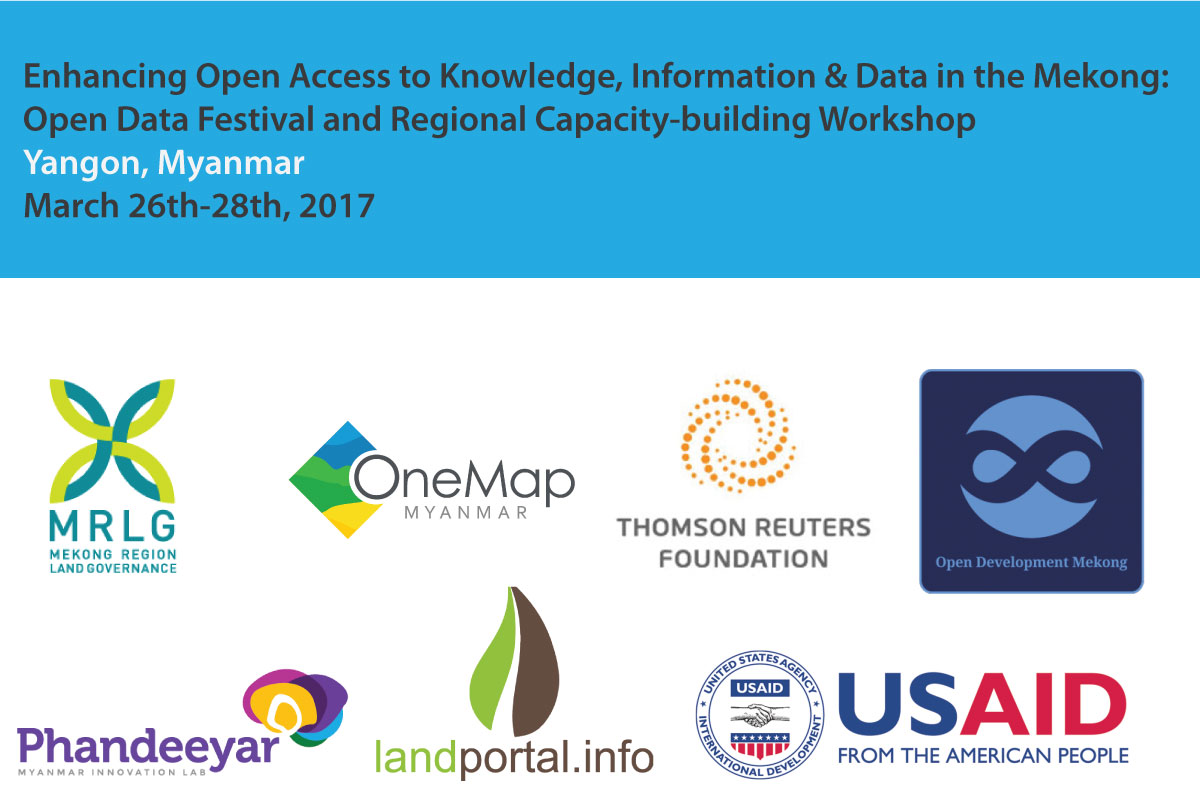Over the last 30 years, the nation states in the Mekong region have taken steps to reform their land policy to facilitate the efforts to end poverty, create wealth and grow their economies. To do this most effectively in this modern age requires the leveraging of technical innovations and data.
Since 2009, a global movement led by leaders in governments around the world, has sought to champion the opening up of data held by states in order to catalyse innovation, demonstrate accountability and enable people, especially youth, to create wealth and employment contributing to economic growth and stability. Such open data - available in forms that various constituencies can access, use, re-use, re-purpose and share - provide both the public and private sector and non-state actors with a unique opportunity.
Although open data is not the magic bullet to the complex and evolving land governance and land policy reform landscape, it can provide stakeholders within the region with an additional tool to implement their development agendas. These also relate to the 2030 Agenda for Sustainable Development, which is also integrated ASEAN Economic Community (AEC) development planning, and involves the Mekong states. Rapid progress on the SDGs, including indicators related to land, is dependent on the quality and accessibility of data used to develop, implement, monitor and review policy interventions and measure progress against indicators for the 2030 Agenda.
Land is a core part of the development agenda. Improving its use and accessibility increases its efficient and effective use across various the ministries, departments and agencies, while also providing the private and non-profit sectors with data to help them design strong investment and intervention strategies that are also vital to productive development. The Government of Myanmar’s comprehensive development plan, as well as Vietnam’s socio-economic strategy 2020, prioritize elements of economic activity such as manufacturing, agricultural production and economic zones whose implementation would be enhanced by open data, especially land related open data. In Laos, the land policies of the last decade are up for review, with the Prime Minister pledging to find solutions to land issues that have arisen as land has been turned to capital. Improvements in data availability and accessibility will provide policy makers critical information for decision making as well as evidence of change and impact. Open data also offers opportunities to better evaluate, monitor, and respond to the initiatives of other development partners, including private sector. In the broader picture, adopting technologies that improve data organization and management, and its quality and accessibility across and between the various sectors, not only lends itself to more nuanced analysis and interventions on land but can also be used to address related challenges in regard to the environment, public health, and more.
The Myanmar Open Data Festival and the related capacity-building workshop, “Enhancing Open Access and Use of Knowledge, Information & Data in the Mekong,” offer unique opportunities to explore the challenges, needs, opportunities and technologies related to Mekong countries becoming leaders in the effective use of data to support development.
Partners
 |
 |
 |
 |
 |
 |
 |
Storify
Presentations

